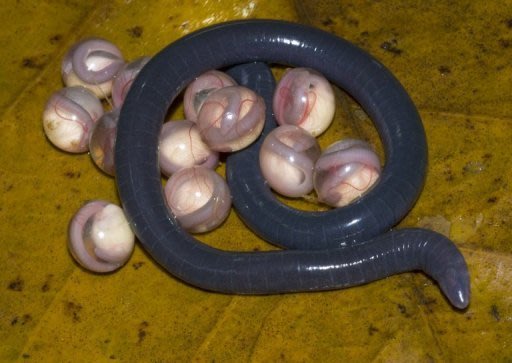
This photograph released by www.frogindia.org on February 22 shows an adult Chikilidae, a new species of legless amphibian known as a caecilian, with eggs and hatchlings at an undisclosed location in north-east India on February 11. Researchers digging in the mud in northeast India discovered the new family of amphibians in a rare scientific breakthrough detailed in a study released on Wednesday
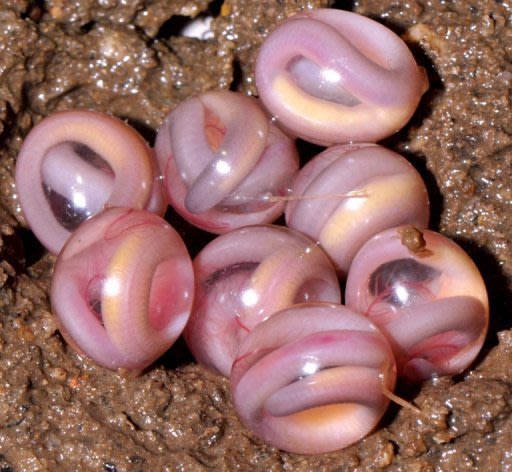
An egg clutch of Chikilidae, a new species of legless amphibian known as a caecilian in an photograph released by www.frogindia.org on February 22 at an undisclosed location in north-eastern India on February 11, 2012. Researchers digging through mud in northeast India have discovered the new family of legless amphibians in a rare scientific breakthrough detailed in a study released Wednesday
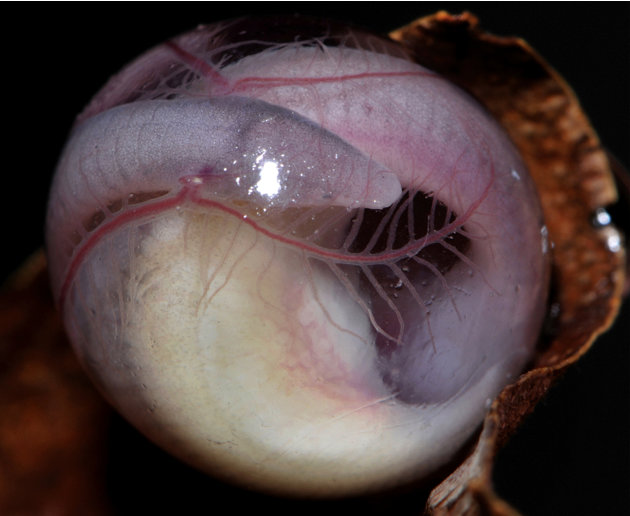
In this photo released by www.frogindia.org, a chikilidae egg is shown in the soils of northeast India. Since the age of dinosaurs the chikilidae has burrowed unbothered beneath the monsoon-soaked soils of remote northeast India, unknown to science and mistaken by many villagers as a deadly, miniature snake. Their discovery, published Wednesday, Feb. 22, 2012, in a journal of the Royal Society of London, gives yet more evidence that India is a hotbed of amphibian life with habitats worth protecting against the country's industry-heavy development agenda.
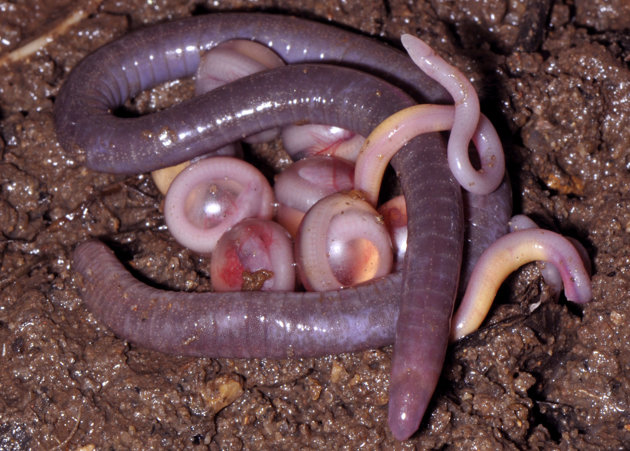
In this photo released by www.frogindia.org, an adult chikilidae sits on its eggs in the soils of northeast India. Since the age of dinosaurs the chikilidae has burrowed unbothered beneath the monsoon-soaked soils of remote northeast India, unknown to science and mistaken by many villagers as a deadly, miniature snake. Their discovery, published Wednesday, Feb. 22, 2012, in a journal of the Royal Society of London, gives yet more evidence that India is a hotbed of amphibian life with habitats worth protecting against the country's industry-heavy development agenda.
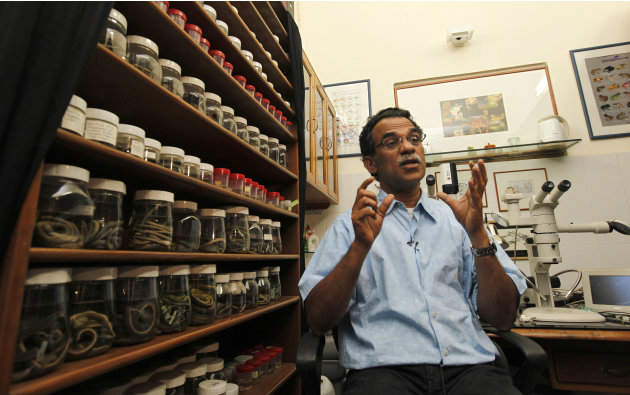
In this Monday, Feb. 20, 2012 photo, Delhi professor Sathyabhama Das Biju speaks to the Associated Press in his laboratory in New Delhi, India. Biju and his team of biologists have identified an entirely new family of amphibians, called chikilidae, endemic to the region but with ancient links to Africa. Their discovery, published Wednesday, Feb. 22, 2012, in a journal of the Royal Society of London, gives yet more evidence that India is a hotbed of amphibian life with habitats worth protecting against the country's industry-heavy development agenda.

In this Monday, Feb. 20, 2012 photo, Delhi professor Sathyabhama Das Biju speaks to the Associated Press in his laboratory in New Delhi, India. Biju and his team of biologists have identified an entirely new family of amphibians, called chikilidae, endemic to the region but with ancient links to Africa. Their discovery, published Wednesday, Feb. 22, 2012, in a journal of the Royal Society of London, gives yet more evidence that India is a hotbed of amphibian life with habitats worth protecting against the country's industry-heavy development agenda.
[Hangat-News]















0 komentar:
Posting Komentar